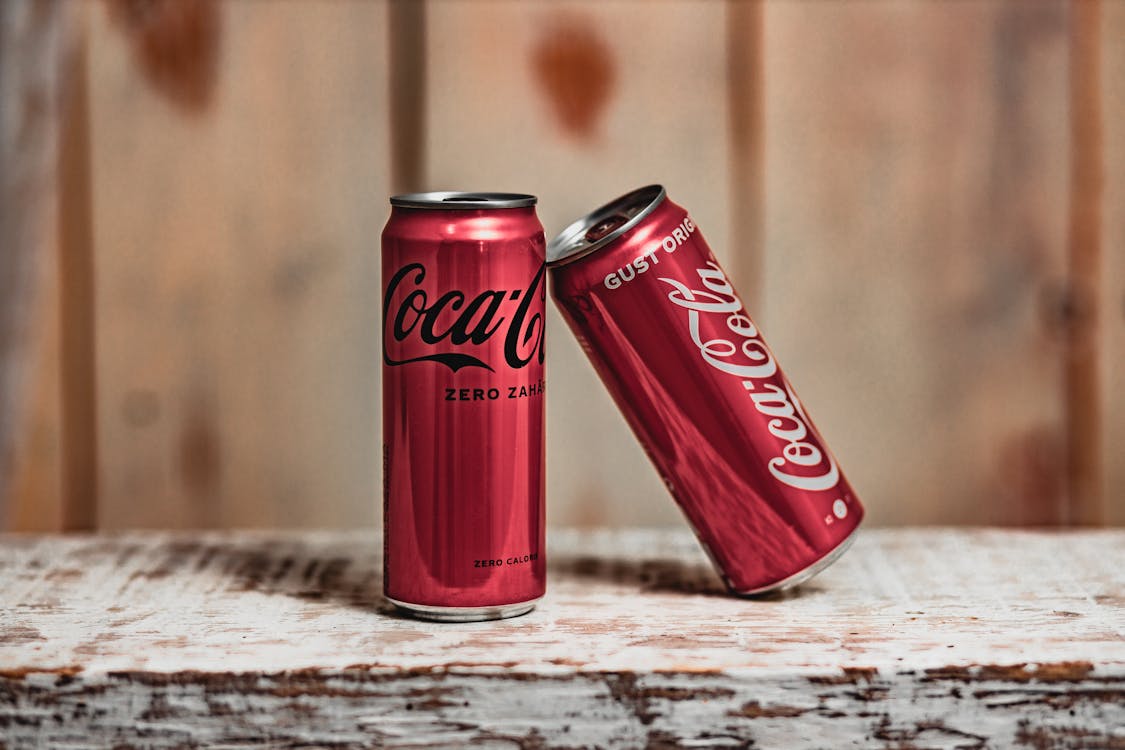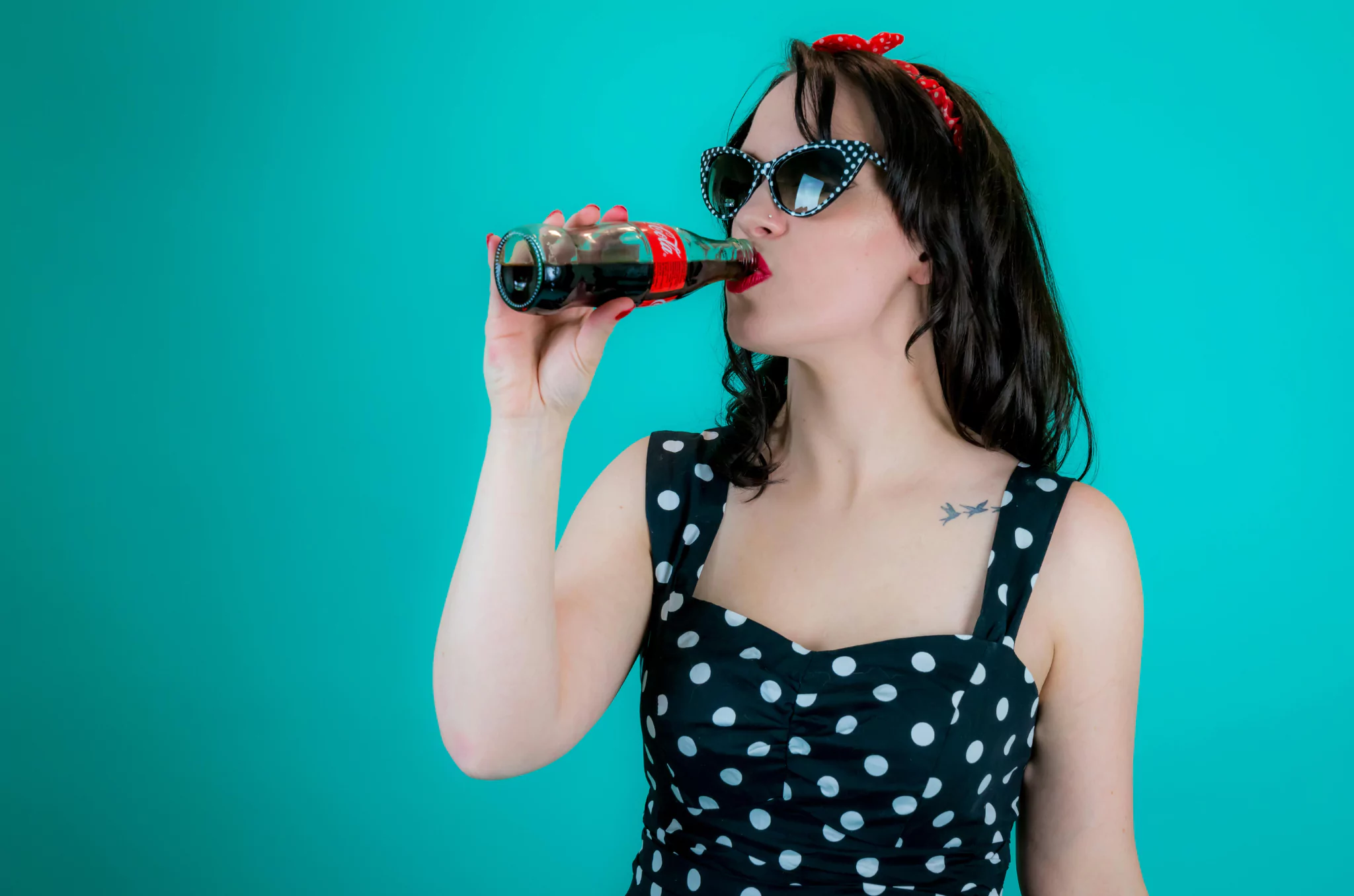Whether you’re watching your calories or just love that fizzy flavor, Diet Coke is a go-to drink for millions of Americans. But there’s one question many people keep asking: “Does Diet Coke have caffeine?” The short answer is yes, most versions of Diet Coke do contain caffeine. But there’s much more to the story.
In this article, we’ll explore everything you need to know about the caffeine content in Diet Coke. We’ll compare it to other drinks, uncover the science behind it, answer health questions, and help you decide whether it fits your lifestyle.
Read Also : https://openwrites.com/health/mitolyn/
What Is Diet Coke?
Diet Coke is a sugar-free soft drink produced by The Coca-Cola Company. It was launched in 1982 as a lower-calorie alternative to regular Coca-Cola. Instead of sugar, it uses artificial sweeteners like aspartame or acesulfame potassium.
Also Read : https://openwrites.com/health/fodmap-diet-the-simple-gut-healing-plan-that-can-change-your-life/
It became wildly popular among people watching their weight, managing diabetes, or looking for a lighter beverage without sacrificing the classic cola taste.
Does Diet Coke Have Caffeine?
Yes. Standard Diet Coke sold in the U.S. contains caffeine.
But not all versions of Diet Coke are the same. Some contain caffeine, and some are caffeine-free. It depends on the product label.
-
✅ Regular Diet Coke: Contains caffeine
-
🚫 Caffeine-Free Diet Coke: No caffeine (as labeled)
How Much Caffeine Is in Diet Coke?
Here’s the breakdown for common U.S. servings:
| Serving Size | Caffeine Content |
|---|---|
| 12 oz can | 46 mg |
| 16 oz bottle | 61 mg |
| 20 oz bottle | 76 mg |
| 1-liter bottle | 129 mg |
Compare That to Recommended Daily Limits:
According to the FDA, the safe limit for most adults is 400 mg of caffeine per day. So, one can of Diet Coke provides just over 11% of that limit.
Diet Coke vs. Regular Coke: Which Has More Caffeine?
Surprisingly, Diet Coke has slightly more caffeine than regular Coca-Cola.
| Drink | Caffeine (12 oz) |
|---|---|
| Diet Coke | 46 mg |
| Coca-Cola Classic | 34 mg |
This difference is due to the flavor formula. Diet Coke is made from a different base than regular Coca-Cola, and its formulation includes more caffeine to enhance the sharper flavor.
Diet Coke vs. Coffee, Tea, and Energy Drinks
To understand where Diet Coke stands, let’s compare it with other common drinks:
| Beverage | Caffeine (per 12 oz) |
|---|---|
| Diet Coke | 46 mg |
| Coffee (brewed) | 120–180 mg |
| Green Tea | 30–50 mg |
| Energy Drink (Red Bull) | 111 mg |
| Black Tea | 40–70 mg |
So, while Diet Coke has less caffeine than coffee or energy drinks, it still contains enough to affect your body, especially if consumed in large quantities.

Caffeine-Free Diet Coke: Is It Really Caffeine-Free?
Yes, Caffeine-Free Diet Coke is truly free of caffeine. It comes in a gold or tan-colored can in the U.S.
However, the taste may differ slightly. Some consumers say it’s a little less sharp compared to regular Diet Coke, likely due to the absence of caffeine, which enhances bitterness and complexity.
Why Does Diet Coke Have Caffeine at All?
Caffeine serves several purposes in Diet Coke:
-
Flavor enhancement: Caffeine adds a mild bitterness and sharpness.
-
Stimulant effects: It provides a mild energy boost.
-
Marketing appeal: Many consumers seek caffeinated drinks to stay alert.
Caffeine isn’t just added randomly—it’s part of the drink’s profile and appeal.
Health Effects of Caffeine in Diet Coke
Caffeine is a central nervous system stimulant. In moderation, it’s considered safe and can even offer benefits:
Potential Benefits:
-
Increased alertness
-
Improved mood
-
Enhanced cognitive performance
-
Temporary energy boost
Potential Risks (especially in excess):
-
Anxiety or restlessness
-
Insomnia
-
Increased heart rate
-
Dependency or withdrawal
-
Stomach upset
If you’re drinking multiple cans a day, the side effects might sneak up on you—especially if combined with other caffeine sources like coffee or chocolate.
Is Diet Coke Addictive Because of Caffeine?
Yes, Diet Coke can be mildly addictive, mainly due to:
-
Caffeine dependence: Over time, the brain expects caffeine and reacts to its absence.
-
Flavor and sensory cues: The fizz, sweetness, and coldness create a ritual-like experience.
-
Artificial sweeteners: While not physically addictive, they can train the brain to crave more sweet flavors.
Some users report cravings and withdrawal symptoms when they try to quit, like headaches and mood swings.
Also Read : https://openwrites.com/health/brat-diet-a-gentle-way-to-soothe-your-stomach-and-heal-naturally/
Can You Drink Diet Coke Daily?
You can, but moderation is key. Here’s a safe approach:
| Frequency | Health Risk |
|---|---|
| 1 can per day | Generally safe |
| 2–3 cans/day | Monitor intake |
| 4+ cans/day | Possible side effects |
According to Harvard Health, even a couple of cans per day aren’t likely to harm most healthy adults—but overuse may cause issues over time, especially when paired with a high-caffeine diet.
Who Should Avoid Diet Coke with Caffeine?
Certain groups may want to limit or avoid caffeinated Diet Coke:
-
Pregnant or breastfeeding women (as per CDC guidelines)
-
People with anxiety disorders
-
Those with insomnia or sleep issues
-
Children and teens
-
People with heart rhythm conditions
-
Individuals sensitive to caffeine
For these individuals, Caffeine-Free Diet Coke is a better option.
How to Cut Back on Caffeinated Diet Coke
If you feel like you’re drinking too much Diet Coke, here’s how to reduce it gradually:
-
Switch to smaller cans or bottles
-
Alternate with water or caffeine-free beverages
-
Try caffeine-free Diet Coke
-
Use sparkling water with lemon as a substitute
-
Track your caffeine intake from all sources
Cutting back slowly helps prevent withdrawal symptoms like headaches or fatigue.
Myths vs. Facts About Diet Coke and Caffeine
| Myth | Reality |
|---|---|
| Diet Coke is caffeine-free | False – only some versions are |
| It has less caffeine than coffee | True – much less than coffee |
| Caffeine in soda is unnatural | False – it’s the same caffeine as in tea or coffee |
| Artificial sweeteners increase caffeine craving | False – but they can increase sweet cravings |
Expert Opinions and Dietary Guidelines
Leading health authorities, including the FDA, Mayo Clinic, and American Heart Association, generally agree:
-
Moderate caffeine intake (up to 400 mg/day) is safe for healthy adults.
-
Artificial sweeteners are FDA-approved, but more research is needed on long-term effects.
-
Balance is important—caffeine shouldn’t replace water or nutrient-rich drinks.
Quotes from Experts:
“Caffeine in moderate amounts is not harmful for most people, but overconsumption can lead to problems like insomnia or anxiety.”
— Mayo Clinic Staff
“Artificially sweetened beverages should be consumed in moderation as part of an overall healthy diet.”
— American Heart Association
Final Thoughts: Should You Worry About Caffeine in Diet Coke?
So, does Diet Coke have caffeine? Yes, it does—but not as much as coffee or energy drinks. For most people, a can or two a day won’t cause harm. But if you’re sensitive to caffeine or already getting it from other sources, it’s smart to keep track.
If you’re concerned about side effects or want to cut down, try Caffeine-Free Diet Coke or rotate with water-based alternatives. The key is balance.
Whether you love Diet Coke for the taste, the fizz, or the energy boost, now you’re empowered with all the facts to make a smarter sip.
1. Does Diet Coke have more caffeine than regular Coke?
Yes, Diet Coke has slightly more caffeine than regular Coca-Cola. A 12 oz can of Diet Coke contains about 46 mg of caffeine, while regular Coke has around 34 mg.
2. Is Caffeine-Free Diet Coke really caffeine-free?
Yes. Caffeine-Free Diet Coke contains zero caffeine. It’s a separate version, usually found in gold or tan packaging, and is clearly labeled “Caffeine-Free.”
3. How much caffeine is in a can of Diet Coke?
A standard 12 oz can of Diet Coke contains 46 milligrams of caffeine. That’s about half the amount of caffeine in a small cup of coffee.
4. Is it safe to drink Diet Coke every day?
For most healthy adults, drinking one to two cans per day is considered safe. However, moderation is key, especially if you also consume other caffeinated drinks like coffee or energy drinks.
5. Can Diet Coke cause caffeine addiction?
Yes, over time you can develop a mild dependence on the caffeine in Diet Coke. Some people experience headaches, fatigue, or irritability if they suddenly stop drinking it.
6. Is Diet Coke a good source of energy?
Diet Coke may give you a temporary boost due to the caffeine, but it doesn’t provide real nutrition or sustained energy like a balanced meal or a snack would.
7. Who should avoid Diet Coke with caffeine?
Pregnant women, children, people with heart problems, anxiety disorders, or caffeine sensitivity should avoid or limit Diet Coke. Caffeine-Free Diet Coke is a safer option for them.
8. How does Diet Coke compare to coffee in caffeine content?
Diet Coke has much less caffeine than coffee. A 12 oz coffee has around 120–180 mg, while the same size Diet Coke has 46 mg.
9. Is it better to drink Diet Coke or regular Coke for lower caffeine?
If you’re only concerned about caffeine, regular Coke has less. But if you’re watching sugar or calories, Diet Coke is the better option—unless you choose Caffeine-Free.
10. Does the caffeine in Diet Coke affect sleep?
Yes, especially if consumed late in the day. Caffeine can stay in your system for 4 to 6 hours, so drinking Diet Coke in the evening might delay sleep or reduce sleep quality.
